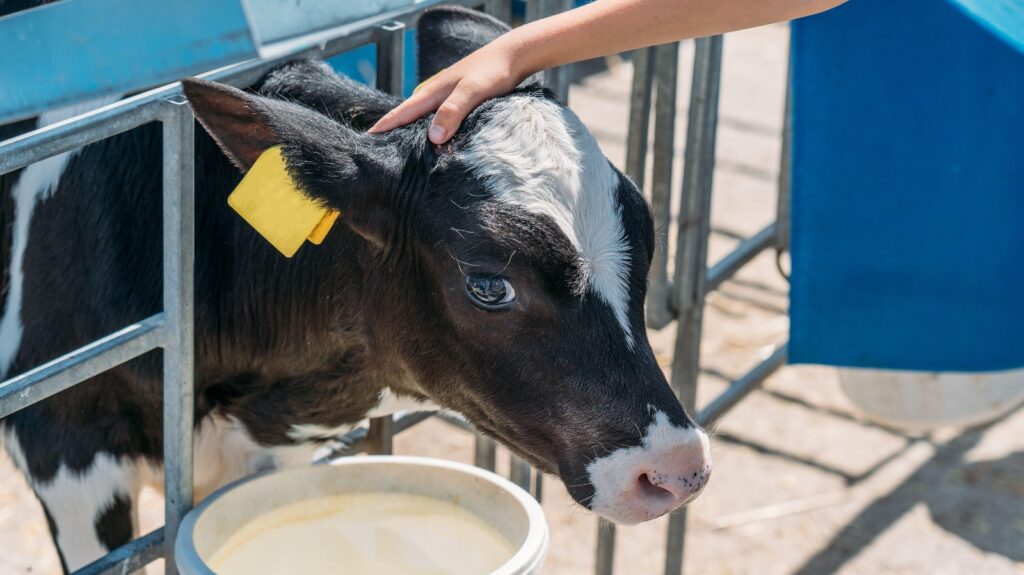HSBC, the second-largest bank in Europe, has been exposed as a substantial funder of the now-infamous Madox Farm, which recently made headlines for animal abuse.
The finance titan handed the farm a six-figure sum, which critics say directly helped Madox grow its operations and consequently, increase the number of animals in Madox’s firing line.
Now, a coalition of climate scientists and animal advocates are urging HSBC to come good on its promise to “take responsibility” (one of the banking giant’s core values), and divest from animal agriculture altogether.
The problem with Madox Farm
Non-profit Animal Equality UK and a host of co-signatories penned a letter to HSBC about the matter. It was sent to the corporation yesterday afternoon.
Animal Equality UK’s executive director Abigail Penny, writer George Monbiot, actor Peter Egan, author Eleanor Boyle, professors Tim Jackson and Julia Steinberger, and special advisor to the Wealth Economy Project, Dimitri Zenghelis, used the letter to drive home the importance of divesting from animal farming.
In February, a confronting BBC Panorma documentary placed Madox Farm and its practices under a microscope. At the facility – based in Carmarthenshire, South Wales – Animal Equality investigators discovered extreme violations of animal welfare standards.
Employees were filmed striking cows with shovels, kicking them in the face and udders, and choosing to let animals “die in agony” rather than intervene with veterinary care, the letter says.
But documentary viewers were also shocked by standard dairy industry practices. Cow-calf separation, for example, whereby a newborn calf is removed from their mother within days, hours, or even minutes of being born, so that her milk can be sold for human consumption.
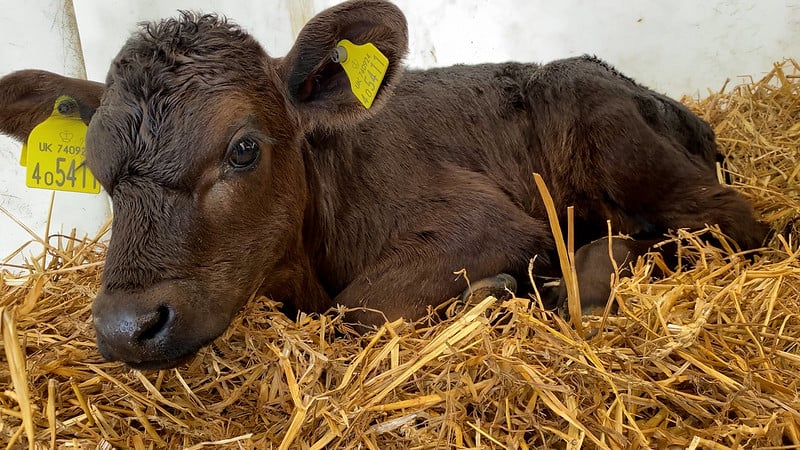
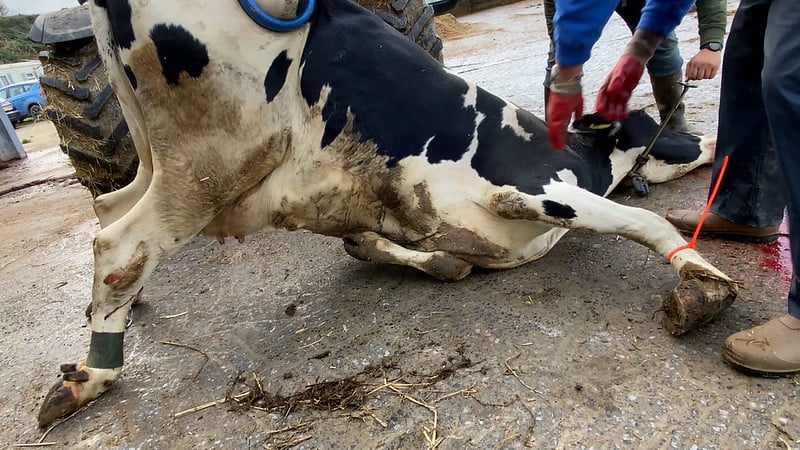
The common practice causes “undeniable psychological torment” for millions of cows and calves every year, the letter says, adding that “suffering on this scale is unfathomable.”
The letter highlights how intensive dairy farming has seen cows selectively bred to produce 40 percent more milk than they did a few decades ago, “leaving one-third [of cows] unable to walk at all.”
This too was documented at Madox, a Red Tractor-assured site, which is also backed by P&O Cruises and British Airways.
HSBC’s links to animal cruelty
This is part of why the letter’s signatories felt “disdain” upon learning that HSBC had given Madox a hefty sum.
Madox used these funds to build a 9,600-square-foot facility and increase its herd to more than 650 cows at any one time, the group says. It’s a project that HSBC was “passionate” about and “proud” to support, said HSBC UK’s deputy head of agriculture, Euryn Jones, at the time.
But the letter maintains that because of the partnership, HSBC is “directly responsible for condemning more cows and calves to experience this anguish.”
“This troubling footage begs a troubling question: where is your oversight of these farms you help fund? Why was this abuse happening under your watch? And, most importantly, what is your next move?” the letter reads.
Animal farming and the climate crisis
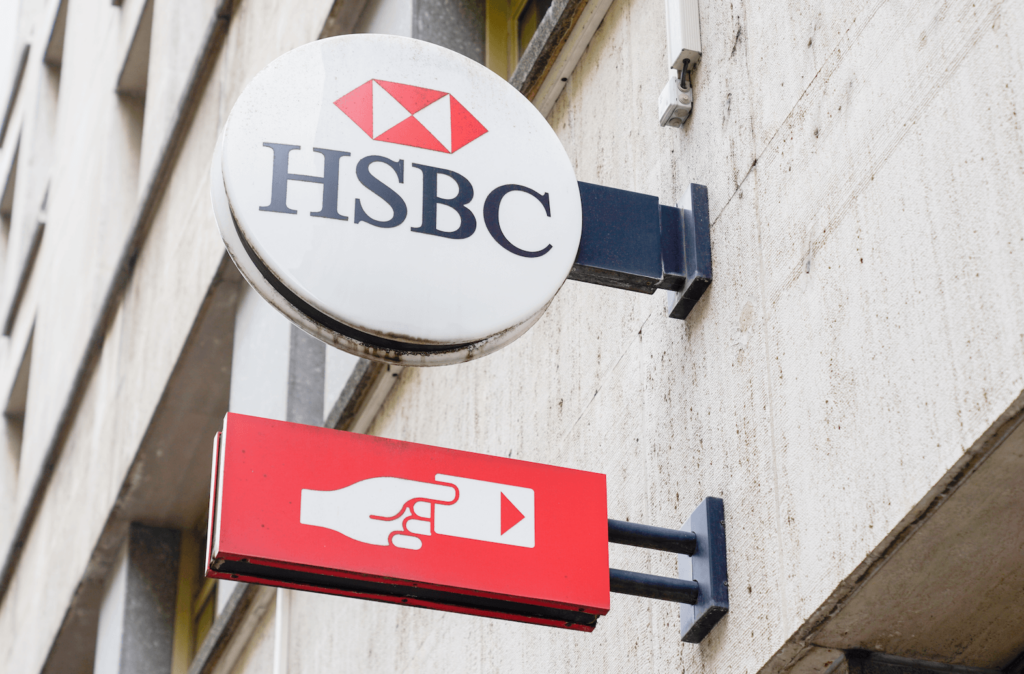
Madox isn’t the only farm to receive funding from HSBC, and this is part of a wider problem, the letter stresses.
The financial services giant maintains that it is committed to protecting “communities, businesses, and the natural environment from the damaging” climate emergency. Yet, in mid-2021, HSBC launched a £1.2 billion fund especially for the agricultural sector, including animal farming.
The move clashes with HSBC’s sustainability commitments, the letter highlights, since animal agriculture is a significant driver of the climate crisis.
The sector is the leading cause of global acidification and eutrophication, as well as land and water use. It’s also responsible for 14.5 percent of global greenhouse gas emissions.
Further, animal farming is to blame for up to 91 percent of deforestation in the Amazon rainforest, and is heavily linked to biodiversity loss and antibiotic resistance too.
‘Put your money where your mouth is’
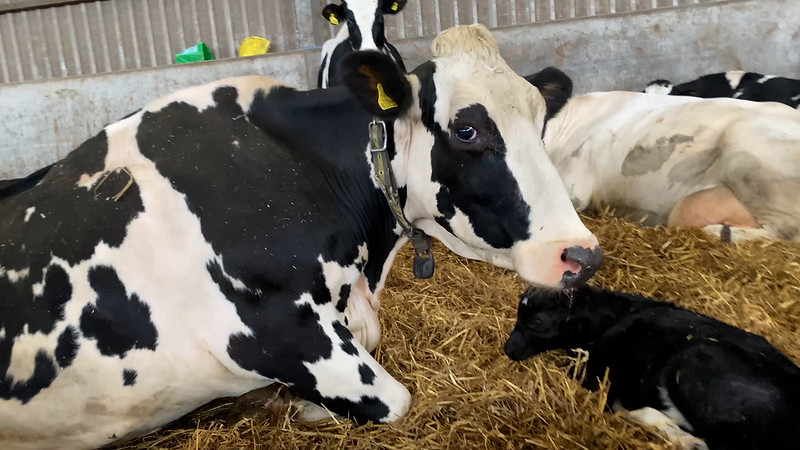
As a result, HSBC’s funding efforts must see an upheaval, the letter says.
“Animal welfare is an emerging investor issue. The escalating ESG risks associated with supporting intensive animal agriculture, from labour to water risks throughout supply chains, can no longer be ignored,” the letter states.
“The good news is, you can accelerate us to a brighter future. Please, divest from animal agriculture and instead support farmers in their transition to arable farming and rewilding of their land.”
The signatories ask that HSBC – which pulls in roughly US$50 billion in revenue a year, and holds nearly $3 trillion in assets – uses its position and power to “leapfrog society forward.”
“Put your money where your mouth is … our planet – our home – urgently needs action, not words.”
“We hope that we can count on you.”
